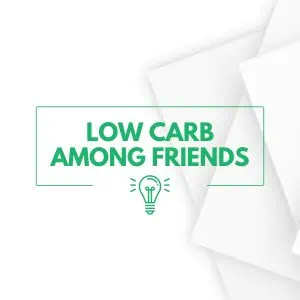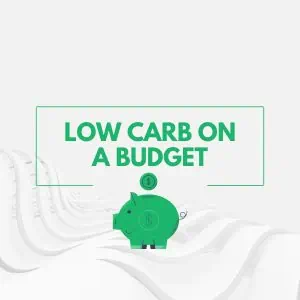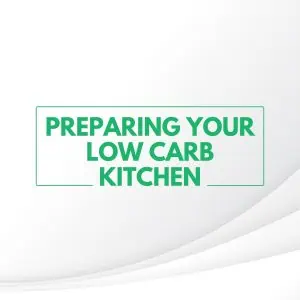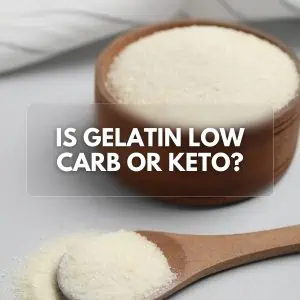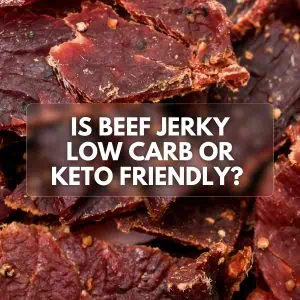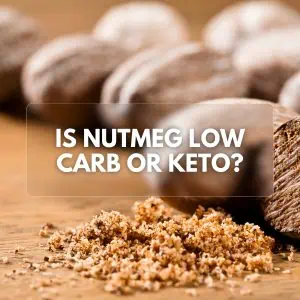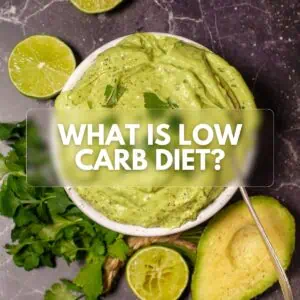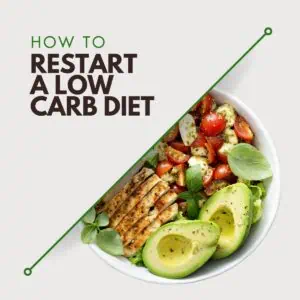Sharing is caring!
Buttermilk is not low carb, but you can still have it on a low carb or keto diet with careful planning. It is a versatile dairy product known for its tangy flavor and creamy texture. It's commonly used in baking, cooking, and refreshing beverages. However, if you're following a ketogenic or low carb diet, you need to consider a few things before having it.
The rise of low carb diets for a healthy lifestyle has emphasized the importance of choosing the right foods for success. Join me as I analyze the daily carb intake of buttermilk and assess its compatibility with ketogenic and low carb diets. I'll also present alternative options that align with your keto goals. Stick with me to discover whether you can enjoy the creamy tang of buttermilk without compromising your diet.
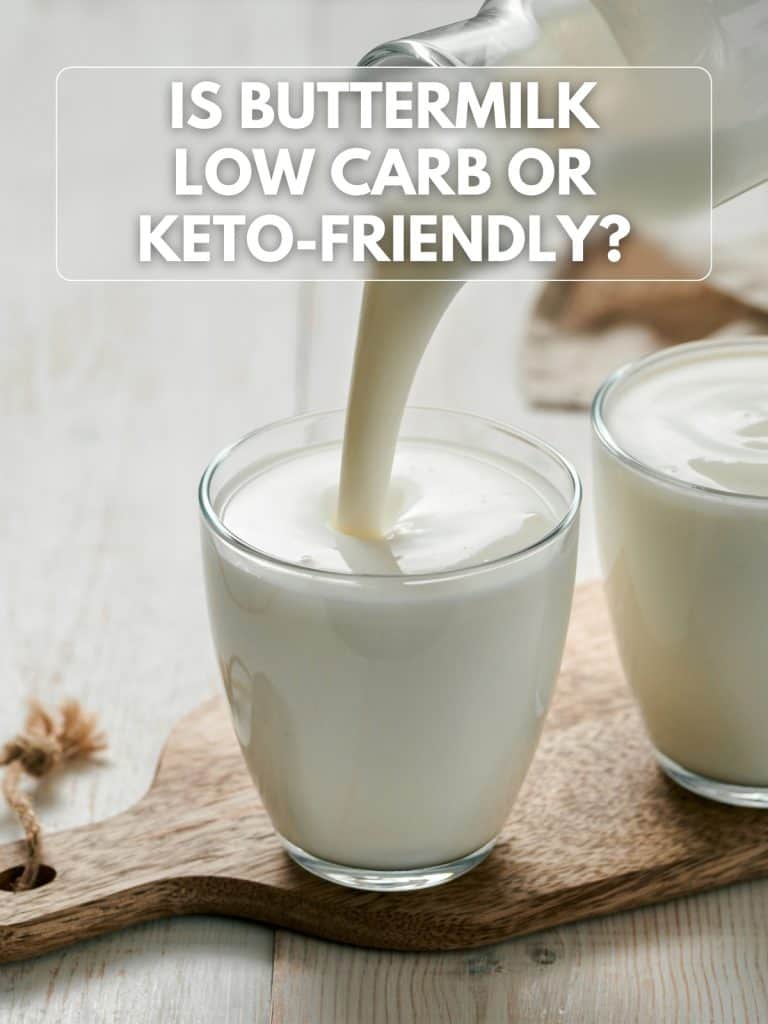
Table of Contents
Ketogenic Diet Overview
The ketogenic diet, widely known as keto, has surged in popularity for its health benefits and weight loss effects. Keto works by shifting the body's energy source from carbs to fat, leading to the production of ketones and entering a state called ketosis.
If you're on a keto journey, you might wonder which foods fit this lifestyle. With keto, most foods are acceptable as long as they're not simple carbs like sugars or sweets. Understanding net carbs and monitoring daily intake is key.
Buttermilk, a dairy product loved for its flavor and texture in recipes like pancakes, raises questions about its keto compatibility. In this article, we'll delve into buttermilk's role in a low-carb diet, exploring its benefits, keto-friendly alternatives, and how to incorporate it into your keto routine. Let's dive in!
What Is Buttermilk?
Before determining if buttermilk is keto-friendly, it's important to understand what exactly is buttermilk.
Buttermilk is a fermented dairy product that was traditionally made by churning cream to produce butter. Today, it's typically made by adding lactic acid bacteria to low-fat or skim milk, resulting in a tangy and thin-textured beverage.
Buttermilk is a versatile ingredient that can enhance keto-friendly and low-carb dishes. For example, it can be used to make a creamy ranch dressing for salads or veggie dips. It's excellent for marinating proteins like chicken or turkey, imparting flavor and tenderness without the carb content. Buttermilk can also enhance keto pancakes or waffle mixes, giving them a delightful tang. Additionally, it's a wonderful addition to keto desserts such as cheesecakes or light panna cotta.
Types of Buttermilk
There are various types of buttermilk, each with its unique characteristics:
- Traditional or "cultured" buttermilk: This type is a byproduct of churning butter from cultured cream. It offers a tangy flavor widely used in cooking and baking.
- Acidified buttermilk: Created by treating regular dairy milk with an acid like lemon juice or vinegar, this version mimics the tanginess of traditional buttermilk but lacks some complexity.
- Powdered buttermilk: Ideal for infrequent use, powdered buttermilk has a longer shelf life and can be mixed with water when needed, making it convenient to store with other dry ingredients in the pantry.
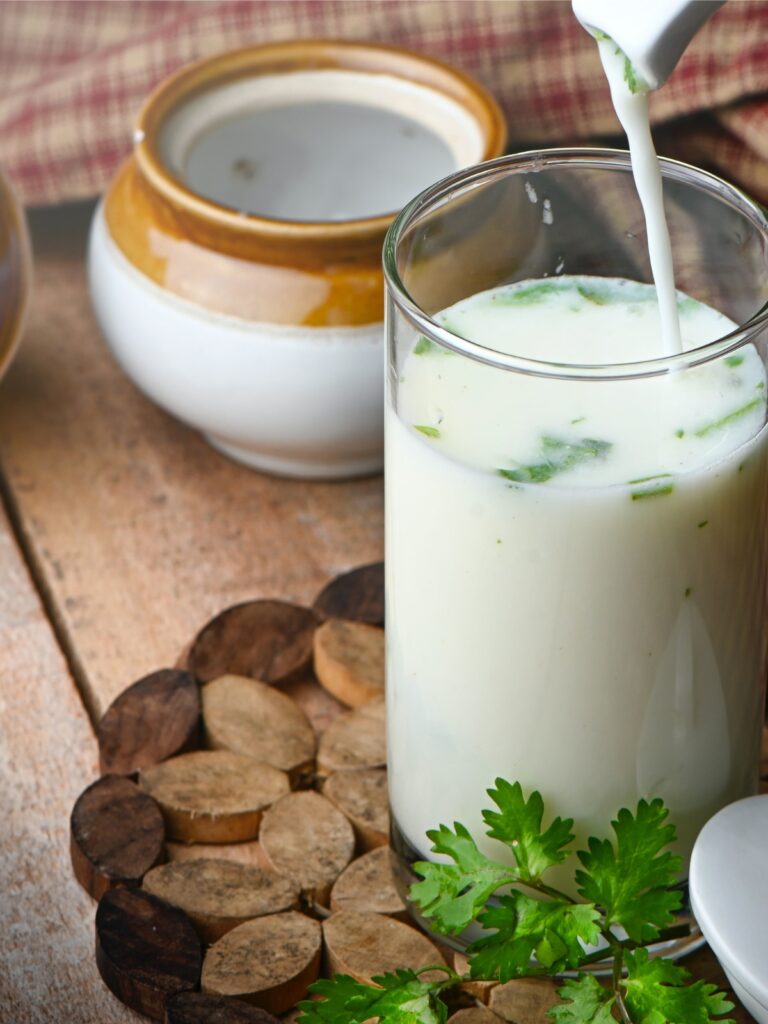
Buttermilk Nutrition Facts
Let's examine buttermilk's nutritional profile to determine whether it is suitable for a keto diet.
For a serving of one cup of low-fat buttermilk (240 grams) and one cup of full-fat buttermilk (245 grams), here's what you can expect:
Nutrient Low-Fat Buttermilk (1 cup / 240 grams) Full-Fat Buttermilk (1 cup / 245 grams)
- Calories 103 152
- Carbs 11.5 grams 12.0 grams
- Fiber 0 grams 0 grams
- Net Carbs 11.5 grams 12.0 grams
- Protein 8.3 grams 7.9 grams
- Fat 2.6 grams 8.1 grams
In addition to its macronutrients, buttermilk also provides essential vitamins and minerals such as calcium, riboflavin, vitamin B12, and pantothenic acid. Furthermore, being a fermented product, buttermilk contains probiotics, which can be beneficial for gut health (we'll explore this further later). This combination of nutrients makes buttermilk a well-rounded addition to your diet. Let's delve deeper into its keto compatibility.
Is Buttermilk Keto-Approved?
A typical serving of buttermilk contains a high amount of carbohydrates, primarily from sugars. A full cup of buttermilk could significantly contribute to your daily carb allowance in a strict keto diet, which usually limits daily net carbs to 20-50 grams.
However, with careful planning and portion control, buttermilk can still be incorporated into a keto lifestyle. For example, consuming half a cup of buttermilk equates to approximately 6 grams of carbs, which may fit within your daily carb budget if you're aiming for ketosis. Utilizing it as a marinade can also be effective, as much of the marinade is discarded after use, which reduces the carbs in buttermilk, helping to minimize overall carb intake.
If you follow a very low-carb regimen, you can still enjoy buttermilk in moderation. It ultimately comes down to managing portion sizes and monitoring your overall carbs consumption throughout the day to maintain ketosis effectively.

Net Carbs and Daily Carb Goals Explained
If you're new to the keto diet, understanding net carbs is essential for tracking your carbohydrate intake effectively (if you're already familiar, feel free to skip ahead).
Net carbs are calculated by subtracting the grams of fiber from the total carbohydrate content. Since fiber isn't metabolized or absorbed by the body, it doesn't contribute to your overall carb intake or affect blood sugar levels.
To calculate net carbs, use the following equation:
Net carbs=Total carbs−Grams of fiber
For example, if a food item contains 10 grams of total carbs and 8 grams of fiber, the net carb count would be 2 grams. This demonstrates how foods high in fiber can have a lower impact on net carbs than initially perceived.
Establishing a daily carb limit on keto varies depending on individual needs and goals. Generally, those following a strict ketogenic diet aim to consume between 20-50 grams of net carbs per day. This minimal carb intake promotes ketosis, a metabolic state where the body utilizes fat for energy instead of carbohydrates. Adjusting your carb limit based on personal preferences and responses to ketosis is key to achieving your desired results on the keto diet.
Keto Alternatives for Buttermilk
Portion control is key to managing carb intake when considering buttermilk for keto. Be cautious when selecting store-bought buttermilk, as some varieties may contain added sugars, which can increase your carb consumption. Always check the nutritional label and opt for options without added sugars.
If you're not a fan of buttermilk or seeking a low-carb alternatives for buttermilk, here are some options to consider:
- Dairy-Free Buttermilk: Combine unsweetened almond or coconut milk with a bit of lemon juice or apple cider vinegar to replicate the tangy flavor and acidity of buttermilk with fewer carbs. This is also a great option for those with lactose intolerance.
- Greek Yogurt: Full-fat Greek yogurt offers a tangy taste and creamy texture similar to buttermilk, plus it's high in protein.
- Sour Cream: This high-fat, low-carb dairy product can be thinned with water or unsweetened almond milk to achieve the creaminess of buttermilk.
- Heavy Cream: While heavy whipping cream lacks the tangy flavor of buttermilk, it's a high-fat alternative. To use heavy cream as a substitute for buttermilk cream, mix 1 tablespoon of lemon juice into 1 cup of heavy whipping cream and let it rest for 10 minutes before using.
These alternatives provide options for maintaining a keto-friendly diet while enjoying recipes that traditionally call for buttermilk. Experiment with these substitutes to find the best fit for your low carb recipes!
Health Benefits of Buttermilk
Whether or not you follow a keto diet, buttermilk offers various health advantages:
- Nutrient-Rich: Buttermilk contains essential nutrients like calcium, potassium, vitamin B12, and riboflavin (vitamin B2). These nutrients are vital for bone health, blood pressure regulation, and overall energy metabolism.
- Probiotics for Gut Health: Traditional buttermilk, especially when made from yogurt, contains live probiotic cultures such as Lactobacillus acidophilus and Bifidobacterium bifidum. These beneficial bacteria support a healthy gut microbiome, aid digestion. They may alleviate digestive issues like irritable bowel syndrome (IBS) and diarrhea.
- Bone Health: The calcium and phosphorus in buttermilk are crucial for maintaining strong bones and preventing conditions like osteoporosis.
- Lactose Digestibility: Many lactose-intolerant individuals find buttermilk easier to digest than regular milk due to its reduced lactose content from the fermentation process.
- Blood Pressure Regulation: The potassium in buttermilk helps regulate blood pressure by counteracting sodium's effects in the diet, potentially lowering the risk of hypertension.

Keto-Friendly Recipes With Buttermilk
Let's explore some delicious keto-friendly recipes that incorporate buttermilk:
- Keto Buttermilk Pancakes: Enjoy delicious keto buttermilk pancakes using almond flour, coconut flour, baking soda, eggs, butter, buttermilk, vanilla extract, and almond milk.
- Keto Buttermilk Biscuits: To make these savory biscuits, gather almond flour, coconut flour, buttermilk, eggs, butter, baking powder, salt, and shredded mozzarella cheese.
- Keto Fried Chicken: For crispy fried chicken, prepare buttermilk, lemon juice, chicken strips, coconut flour crushed almonds, salt, and pepper.
These recipes demonstrate the versatility of buttermilk in keto cooking. Whether you're craving pancakes, biscuits, or fried chicken, buttermilk adds a unique flavor and texture while keeping your meals low-carb and keto-friendly. Enjoy experimenting with these recipes in your keto diet!
Conclusion: Carbs in Buttermilk Suggest It Is High Carb
So, is buttermilk keto? The short answer is No! Buttermilk is generally not considered keto-friendly as it contains 11 to 12 grams of carbs in one cup, depending on whether you choose low-fat or full-fat buttermilk. However, if you're following a more flexible approach to the keto diet or have flexibility in your daily carb allowance, you can enjoy buttermilk in moderation. It's important to be mindful of portion sizes and balance your carb intake from other sources throughout the day.
For those strictly adhering to the keto diet, utilizing one of the keto-friendly buttermilk substitutes mentioned earlier can allow you to maintain ketosis while still enjoying similar flavors and textures in recipes.
Always seek advice from a healthcare professional or nutritionist before making dietary changes, particularly if you have specific health considerations or conditions that necessitate careful management of nutrient intake.
FAQs
Buttermilk typically lasts about 14 days in the refrigerator. Store it in an airtight container to extend its shelf life, which can add a couple more days. If unopened or stored in the freezer, buttermilk can last up to three months.
Yes, buttermilk contains approximately 12 grams of carbs per cup. If you're following a keto diet, it's important to be mindful of portion sizes to avoid exceeding your daily carb limit.
Several dairy products are keto-friendly, including Greek yogurt, ghee, butter, sour cream, and heavy cream. While plain yogurt and regular milk can be included, monitoring their carb content more closely is crucial.
Traditional buttermilk typically contains a moderate amount of carbohydrates, around 12 grams per cup, which may not be suitable for strict low-carb or keto diets. There are currently no widely available commercial options for truly low-carb or keto-friendly buttermilk. However, you can use alternative dairy products or substitutes with lower carbohydrate content in recipes that call for buttermilk.

Pollo Asado (Mexican Grilled Chicken)
This Pollo Asado (Mexican Grilled Chicken) recipe is packed with flavor and comes out perfectly juicy every time. It’s one of those recipes I keep on rotation—easy to prep, great for meal planning, and seriously satisfying.
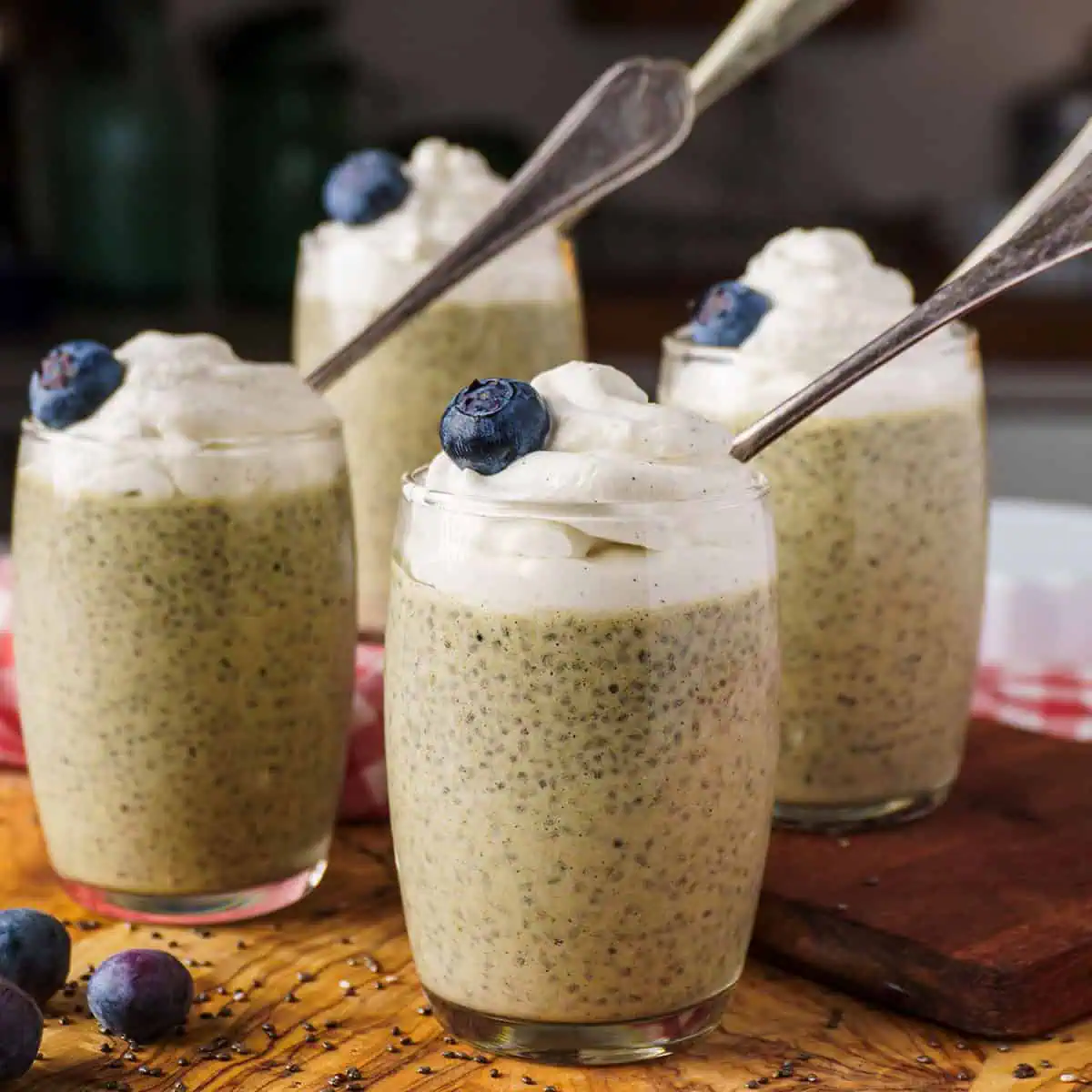
Chia Seed Protein Pudding
This Chia Seed Protein Pudding has become a staple at my house. It’s packed with real ingredients and has a flavor that works for breakfast or dessert. My son eats it daily—and I’m not mad about it.

Keto Mexican Coffee Recipe ☕
My Mexican Coffee recipe is a spiced, frothy treat that’s ready in minutes. With a touch of cinnamon and a hint of chocolate, it’s the perfect way to start your day or wind down after a meal. No fancy equipment needed—just bold flavors and a creamy finish.
Is it low carb? Learn more about it:
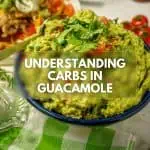
Understanding Carbs In Guacamole: Low Carb or Keto?
Delve into the world of guacamole and its carb content—essential knowledge for low carb and keto enthusiasts. Avocado's creamy texture
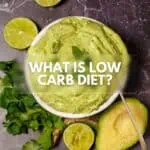
What is Low Carb Diet? Carb Confusion Conquered!
Ever wondered what a Low Carb Diet really entails? I’ve broken down the basics to help you understand how reducing
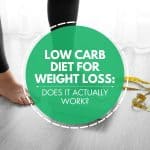
Low Carb Diet for Weight Loss: Does It Actually Work?
Many studies suggest that a low carb diet can indeed be effective for weight loss. By restricting carbohydrates, the body
Sharing is caring!







